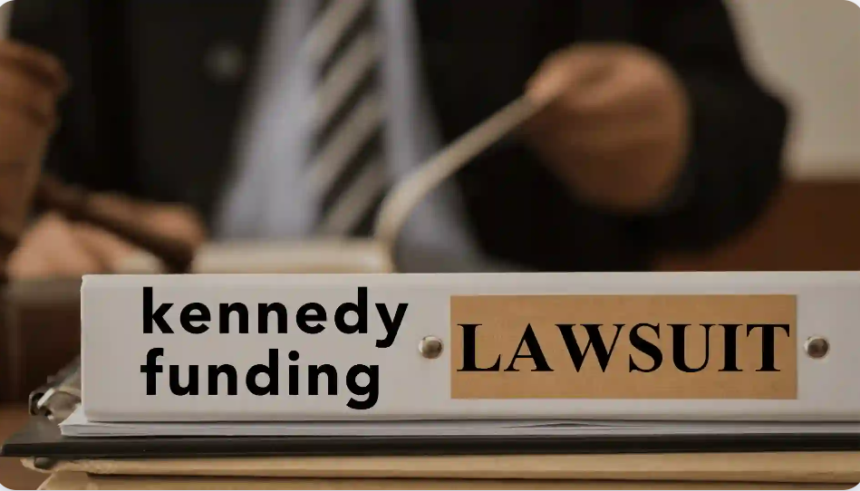Introduction to Kennedy Funding Lawsuit
Welcome to the intriguing world of Kennedy Funding and the lawsuit that has captured the attention of the real estate industry. Get ready to dive into the details of this legal dispute, uncovering what led to this courtroom battle and exploring its potential impact on the market. Join us as we unravel the complexities surrounding the Kennedy Funding lawsuit and delve into both sides’ arguments. Let’s embark on a comprehensive journey through this fascinating case that is shaping up to be a significant chapter in real estate history.
The Lawsuit and What it Entails
Kennedy Funding, a well-known direct private lender, has recently found itself embroiled in a lawsuit that has captured the attention of the real estate industry. The lawsuit centers around allegations of breach of contract and fraud, with both parties presenting compelling arguments to support their claims.
On one side, Kennedy Funding asserts that they fulfilled all contractual obligations and acted in good faith throughout the transaction. They argue that the plaintiff’s claims are baseless and seek to clear their name from any wrongdoing.
Conversely, the plaintiffs maintain that Kennedy Funding failed to uphold their end of the agreement and engaged in deceptive practices during the deal. They are seeking damages for financial losses incurred as a result of these alleged actions.
As this legal dispute unfolds, it raises questions about transparency and accountability within the real estate lending sector. It also serves as a cautionary tale for businesses operating in similar industries regarding due diligence and compliance with contractual agreements.
Background on the Legal Dispute
Kennedy Funding, a prominent direct private lender in the real estate industry, found itself embroiled in a legal dispute that sent shockwaves through the market. The lawsuit stemmed from allegations of breach of contract and fraudulent practices, shaking the foundation of trust within the industry.
The legal battle unfolded as both parties presented their arguments before the court, delving into intricate details of loan agreements and financial transactions. With millions at stake, every move made by Kennedy Funding and the opposing party was scrutinized under a magnifying glass.
The background of this legal dispute revealed a complex web of interconnected relationships between lenders, borrowers, and regulatory bodies. The intricacies of real estate financing came to light as lawyers on both sides meticulously dissected each piece of evidence presented.
As the case continued to unfold in front of eager spectators within the industry, it became evident that the repercussions would extend far beyond just those directly involved. The outcome could potentially set new precedents for how lending practices are conducted in an increasingly competitive market landscape.
Arguments from Both Sides
When it comes to the Kennedy Funding lawsuit there are strong arguments presented by both sides involved in the legal dispute. On one hand, Kennedy Funding claims that they have followed all legal protocols and agreements regarding the loan provided to the real estate developer. They argue that any delays or defaults on payments were solely due to actions taken by the developer.
On the other side, the real estate developer argues that Kennedy Funding engaged in predatory lending practices, pushing them into an unfair financial situation. They claim that the terms of the loan were misleading and put undue pressure on them to meet unrealistic repayment deadlines. The developer also raises concerns about hidden fees and high-interest rates imposed by Kennedy Funding.
Both parties present compelling arguments to support their positions in this complex legal battle surrounding financing and real estate development.
Impact on the Real Estate Industry
The Kennedy Funding lawsuit has sent ripples through the real estate industry, causing both lenders and borrowers to take notice. The legal dispute has raised questions about lending practices and the enforcement of loan agreements within the sector.
Real estate developers may now approach funding deals with more caution, considering potential risks and uncertainties that could arise from similar disputes in the future. Lenders, on the other hand, might reassess their terms and conditions to avoid any loopholes or ambiguities that could lead to legal battles like this one.
The outcome of this lawsuit could set a precedent for how such disagreements are resolved in the real estate world moving forward. It underscores the importance of clear communication, thorough due diligence, and adherence to contractual obligations for all parties involved in commercial transactions.
As stakeholders navigate these uncertain waters, they must stay informed about developments in this case and be prepared to adapt their strategies accordingly. Only time will tell how this lawsuit ultimately shapes the landscape of real estate financing practices.
Possible Outcomes and Resolutions
As the Kennedy Funding lawsuit unfolds, many are left wondering about the potential outcomes and resolutions that could arise from this legal dispute. One possible scenario is a settlement agreement reached between the parties involved, which may involve financial compensation or other terms to resolve the issues at hand.
Alternatively, the court could issue a ruling based on the evidence presented during trial, determining liability and any resulting damages. This decision could have significant implications for both Kennedy Funding and the opposing party, shaping their future actions in the real estate industry.
Another outcome could be an appeal filed by either side if they are unsatisfied with the initial ruling. This would prolong the legal process and add another layer of complexity to an already contentious situation.
Regardless of how it plays out, one thing is certain – the repercussions of this lawsuit will reverberate throughout the real estate industry for years to come. Stay tuned as developments unfold in this high-stakes legal battle involving Kennedy Funding.
Conclusion
The Kennedy Funding lawsuit has undoubtedly captured the attention of the real estate industry and legal community. With both sides presenting compelling arguments, the outcome of this legal dispute remains uncertain. The impact of this case on future lending practices and investment strategies in real estate cannot be underestimated. As stakeholders eagerly await a resolution, it is clear that the repercussions of this lawsuit will reverberate throughout the industry for years to come.







